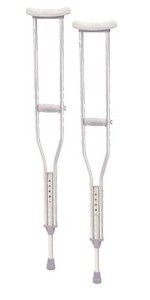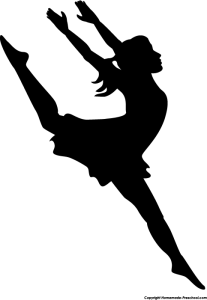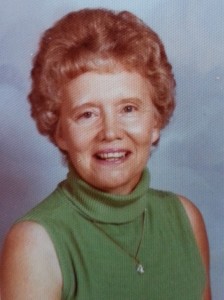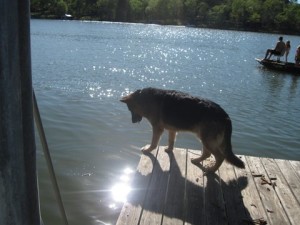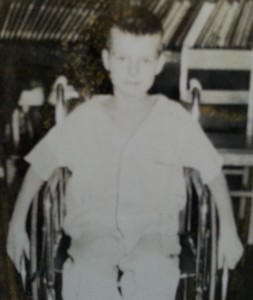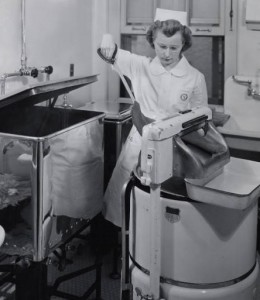When the Sun-glint from her brace caught my eye that Summer day I wondered. About Opaline and her story.
When yet a toddler her body was attacked by the same disabling illness that redirected my own world. For Opaline, however, the impact was evident; dramatically so. Not for months, but years.
In short-order polio wrenched strength and mobility from her lower limbs. Rigid braces received her feet and legs, more or less imprisoning them there. And – like a prisoner whose parole date is postponed – the waiting lengthened. Then lengthened further.
The shiny hip-to-heel fixtures lent support through one elementary school year. Then another, and yet another.
Every morning she rose and called up the ritual – maneuvering each foot into a special shoe. She fitted the cold steel and leather padding about her dormant limbs. At nightfall young Opaline reversed the process. Detaching the braces, she leaned further forward. Then she manually lifted her legs onto the bed.
Lying motionless Opaline sometimes wondered. What would normal movement be like? Running? Dancing?
But this girl was unusual. She carried something within. Resolve. And a zest for living. Ironically, like a distance runner, Opaline entered the Marathon of Life.
Nothing, it seemed, could sideline her. The theme song of her journey could be, “Life’s an adventure. Bring it on.” She matured, completed high school, then college. Friends in our church community regarded her warmly. Smiles typically greeted her when she approached. Neither the crutches nor the braces mattered to anyone. She was Sister Opaline.
Sister Opaline, Sunday School teacher .
Sister Opaline, Vacation Bible School director.
Sister Opaline – High School teacher (her “handicap-fitted” car carrying her to waiting students in another town a distance away).
Sister Opaline, Christmas Play director. . .
Delightful Opaline.
She owned her personal imperfections. Opaline looked to encourage others – especially the younger others. Parading either gossip or whining into Sister Opaline’s presence proved mostly futile. Her knack for winsomely shifting subjects was magic. She mined for the best in people. Her naiveté about human nature was flagrant (though no-one accused her of being naïve).
Wherever she seated herself, Opaline’s crutches lay at the floor or leaned at a wall nearby. Her underarm muscles suffered from bearing much of her body weight over the years. Still, her face easily sprang into smile. The smile seemed visually fragrant like a rose coaxing a passerby to inhale.
Sister Opaline – Spouse. In a marriage with challenges and hardships of its own.
Our church minister and the common people who worshipped together strove to trust the Bible and its message of God’s big love. And of his available power to bring healings, even miracle-healings. As a nine-year-old, with the aid of crutches, I walked from a hospital. This was weeks after being gravely ill – and after a doctor predicted I would not walk again. And after prayer. By all accounts, through simple trust in a loving healer, continued believing prayer played its role in my astonishing recovery. Was this triumphant faith? To the church family there seemed no doubt. God touched me. Radically so.
And yet there was the matter of Sister Opaline. Would she soon have her miracle?
At a particular church service one Sunday evening I watched keenly, hopefully.
The gangly movements of my Angel-lady comrade entered the center aisle. And moved toward the altar. She was a little over five feet tall. Her smartly-groomed auburn hair fell an inch or two above her shoulders. Beneath the shoulders, the ever-present crutches. They bore her along, steadying the balance of a lady hardly a hundred pounds in weight.
Opaline positioned herself in the prayer line.
©2015 Jerry Lout


